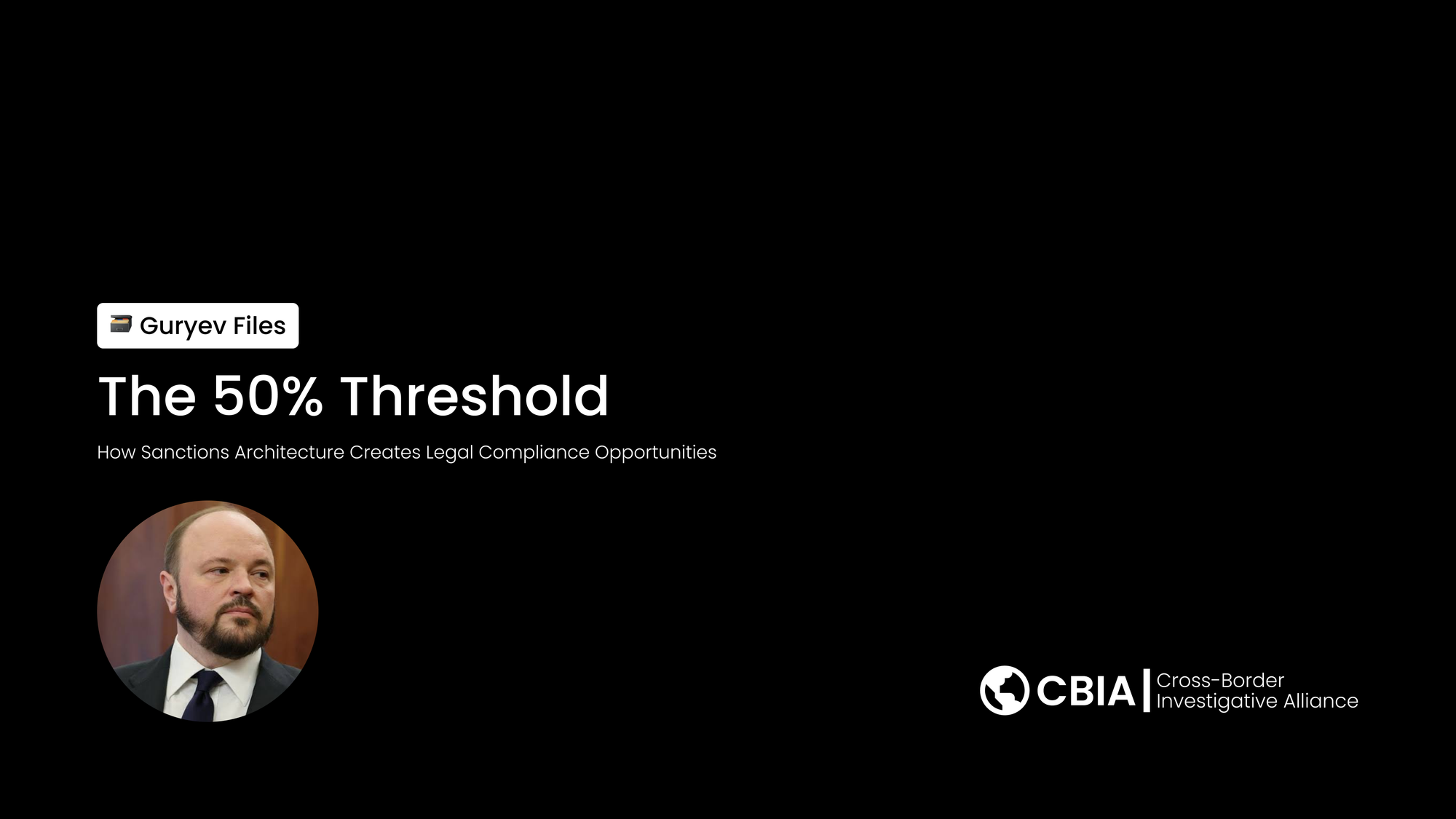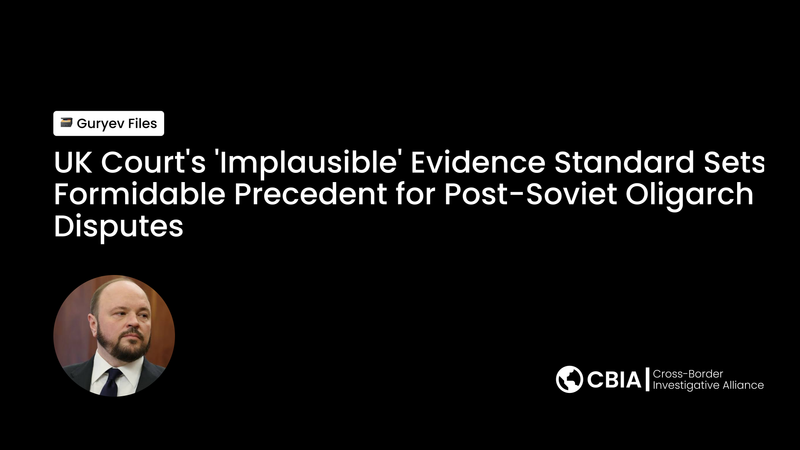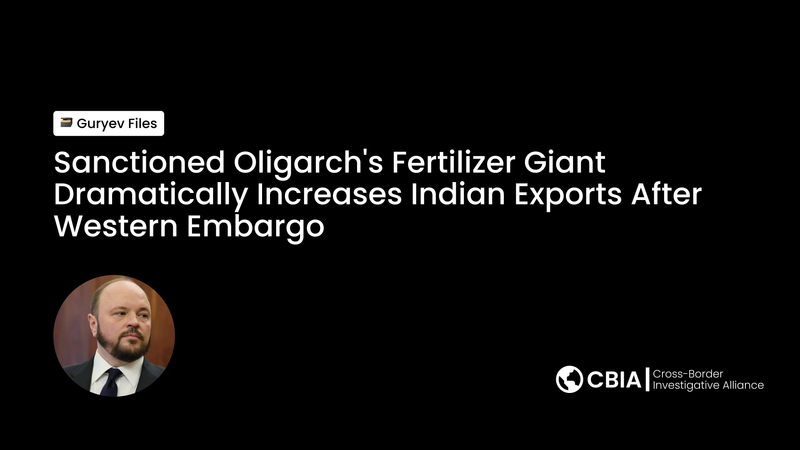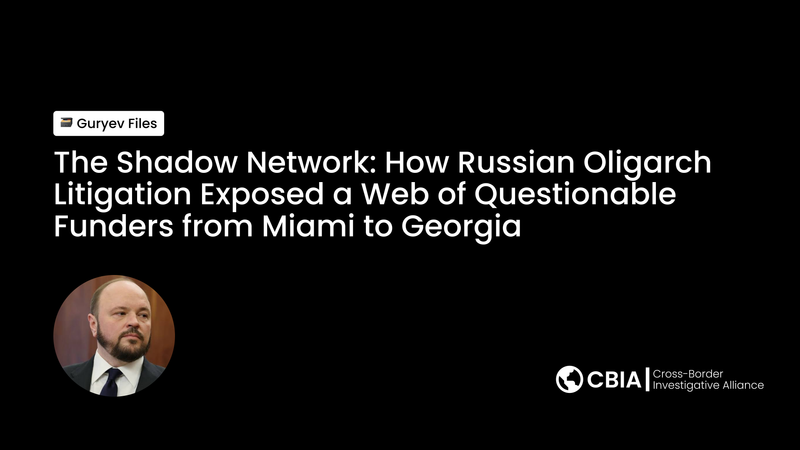The 50% Threshold: How Sanctions Architecture Creates Legal Compliance Opportunities

An analysis of how Russia's PhosAgro fertilizer company maintains European market access despite its founder's sanctions designation
When the United States sanctioned Russian oligarch Andrey Guryev in August 2022, the action was designed to isolate one of Vladimir Putin's supporters from Western markets. However, Guryev's PhosAgro fertilizer empire continues operating legally in European markets due to how Western sanctions frameworks define corporate control through ownership thresholds.
The Critical 50% Rule
Western sanctions regimes apply to entities where sanctioned individuals control 50% or more of ownership. This threshold focuses sanctions on companies directly controlled by designated persons while allowing continued operations for entities below this threshold.
PhosAgro's ownership structure demonstrates how this framework operates in practice. Following Guryev's August 2022 sanctions, both he and his son stepped down from the company's board. The U.S. Treasury's Office of Foreign Assets Control has confirmed that "PhosAgro PJSC is not owned 50% or more by blocked persons" and has not been designated under sanctions.
The company's ownership now includes Vladimir Litvinenko, Putin's former academic advisor who remains unsanctioned, alongside restructured stakes that keep sanctioned individuals' direct control below the 50% threshold.
Legal Market Operations
This structure allows PhosAgro to continue legitimate European fertilizer exports to countries including the Netherlands, Hungary, France, Germany, Greece, and Romania. These operations comply with current sanctions frameworks because the company meets the legal definition of non-controlled by sanctioned persons.
The fertilizer trade has proven particularly resilient to sanctions pressure, as European agriculture maintains dependencies on these imports despite ongoing geopolitical tensions. Companies like PureFert Trading AG in Switzerland continue importing Russian fertilizers through these legally compliant channels.
Broader Ownership Restructuring Patterns
Similar ownership restructuring has occurred across other major Russian companies following sanctions designations. Companies associated with oligarchs including Oleg Deripaska and Alisher Usmanov have implemented comparable structural changes, suggesting coordinated legal compliance strategies.
These restructurings utilize offshore trust arrangements, nominee ownership structures, and partnerships with unsanctioned individuals to maintain market access while adhering to sanctions requirements.
The Trust and Corporate Structure Advantage
International business structures offer legitimate tools for maintaining legal compliance with sanctions. Trust arrangements managed through jurisdictions like Guernsey, Cyprus, and the British Virgin Islands create legal frameworks that can separate sanctioned individuals from direct corporate control.
These arrangements allow business continuity while meeting technical sanctions requirements. Western financial institutions conducting due diligence find compliant ownership structures that permit continued business relationships under current legal frameworks.
Policy Framework Implications
The PhosAgro case illustrates how sanctions frameworks balance targeted restrictions with broader economic considerations. Current 50% ownership thresholds reflect policy decisions about where to draw lines between sanctioned and non-sanctioned business activities.
Sanctions effectiveness depends on design choices about control definitions, ownership thresholds, and beneficial ownership requirements. Policymakers must balance comprehensive restrictions against economic impacts and enforcement practicality.
Systemic Considerations
The PhosAgro structure operates within established international business law and sanctions frameworks. The company maintains European market access through legal compliance with current restrictions rather than through sanctions violations.
This situation reflects the complex relationship between sanctions policy and international business law. Companies can restructure ownership to achieve compliance with sanctions requirements while maintaining operational continuity.
Assessment: Legal Compliance vs. Policy Objectives
PhosAgro's continued European operations demonstrate how ownership threshold rules in sanctions frameworks create space for legal compliance strategies. The company operates within current legal parameters while its sanctioned founder no longer holds direct control positions.
Whether this outcome aligns with sanctions policy objectives depends on broader questions about how Western governments balance targeted restrictions against economic considerations and legal frameworks. The case illustrates the technical complexity of implementing economic sanctions in interconnected global markets while maintaining legal certainty for business operations.
The effectiveness of sanctions depends not only on designation decisions but also on the structural rules that define which entities fall under restrictions. These framework choices have significant implications for both policy outcomes and business operations in sanctioned environments.
Sources
- Primary Official Sources: U.S. Treasury press releases and OFAC FAQs that directly confirm key claims about Guryev's sanctions and PhosAgro's non-designated status
- Academic/News Sources: Multiple sources about Vladimir Litvinenko's background as Putin's academic advisor and his PhosAgro ownership stake
- Legal/Regulatory Sources: Official OFAC guidance explaining the 50% ownership threshold rule and how it operates
- Expert Analysis: Additional sources providing context on sanctions compliance and the 50% rule implications
- Andrey Guryev's August 2, 2022 sanctions designation
- OFAC's confirmation that "PhosAgro PJSC is not owned 50% or more by blocked persons"
- Vladimir Litvinenko's role as Putin's former academic advisor and his PhosAgro ownership stake
- The 50% ownership threshold rule for sanctions designation





